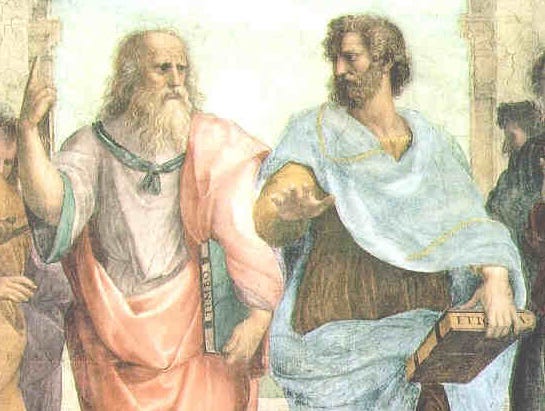

Dear Classical Wisdom Reader,
Epistemology is such a fun word. Especially for philosophers... I mean, it rolls off the tongue, encapsulates a whole branch of thinking (of thinking) and just by saying it sounds like you are accomplishing something.
And while folks not in the know of knowing might think it’s mighty technical (it does seem like it’s the brainchild of both a poet and an engineer), once the veil is lifted, it’s a much more accessible topic.
Simply put, it’s the philosophy of knowledge, coming from the ancient Greek ἐπιστήμη, which means science or knowledge. It asks the questions: What do you know? How do you know that you know? And what is the truest way to arrive at knowledge about the world around us?
Of course, heavy hitters Plato and Aristotle both took stabs at these fundamental questions and interestingly (though perhaps not surprisingly), they didn’t always agree… and the ways in which they departed are very profound.
So please enjoy today’s Member’s in-depth Philosophical Standoff. We’ll delve into Plato and Aristotle’s epistemological views to see how these critical thinkers thought about thinking.
Read on and discuss: Should we listen to Aristotle or Plato? What did they get wrong? What did they get right? How did these ideas impact the medieval/modern worlds... for better or for worse? Comment below and continue the great conversation.
All the best,
Anya Leonard
Founder and Director
Classical Wisdom
P.S. Looking to really delve into the Classics? Classical Wisdom Members, please enjoy our Member’s Only Threads, Roundtable Discussions and Comments Section, below.
Not a member? Subscribe for 19 cents a day and level up your love of learning:
Classical Wisdom Standoff: Epistemology of Plato and Aristotle
By Van Bryan
Before we embark on our intellectual quest to understand some of the fundamental theories of knowledge that were proposed by the ancient philosophers, it is important to remember that our emphasis will be rather narrow. It is impossible to fully comprehend the entirety of ideas from either Plato or Aristotle in the span of a few brief essays. There exist volumes of text dedicated to deciphering the vast amount of information proposed by these two great thinkers, and you could probably spend a lifetime sorting through all of it.
For our purposes we will instead focus on the area of Epistemology, or the philosophy of knowledge. How do you know anything? What is the truest way to arrive at knowledge about the world around us? Plato and Aristotle would both suggest ideas to answer these fundamental questions, and interestingly enough, they were very much at odds.
Plato
Plato is often regarded as one of the most influential, if not the most influential, of the ancient thinkers. He was a prolific writer with bold ideas who would often decipher his thoughts through lengthy dialogues. It is because of these dialogues that some of Plato’s ideas are rather hard to decipher. He would employ other wise philosophers as characters in his essays and his own beliefs would become entangled with the thoughts of the people these characters represented. Plato went to such lengths to create a world outside of our own to explain his philosophy that perhaps it should not be surprising that his hypothesis of epistemology should center around a reality that was separate from the one we perceive.
In order to understand Plato’s epistemology we must first attempt to take stock of the world around us…
Más info en https://ift.tt/Lo0PtkK / Tfno. & WA 607725547 Centro MENADEL (Frasco Martín) Psicología Clínica y Tradicional en Mijas. #Menadel #Psicología #Clínica #Tradicional #MijasPueblo
*No suscribimos necesariamente las opiniones o artículos aquí compartidos. No todo es lo que parece.

No hay comentarios:
Publicar un comentario